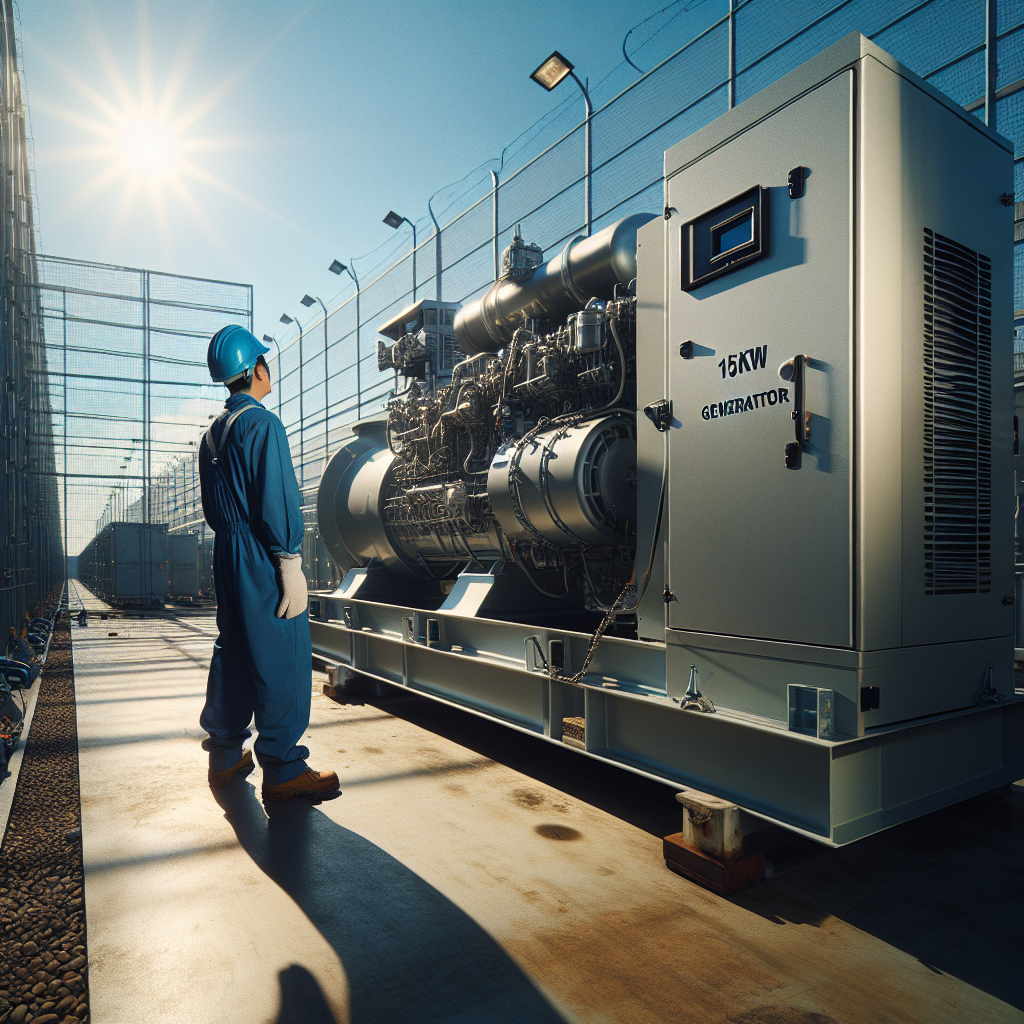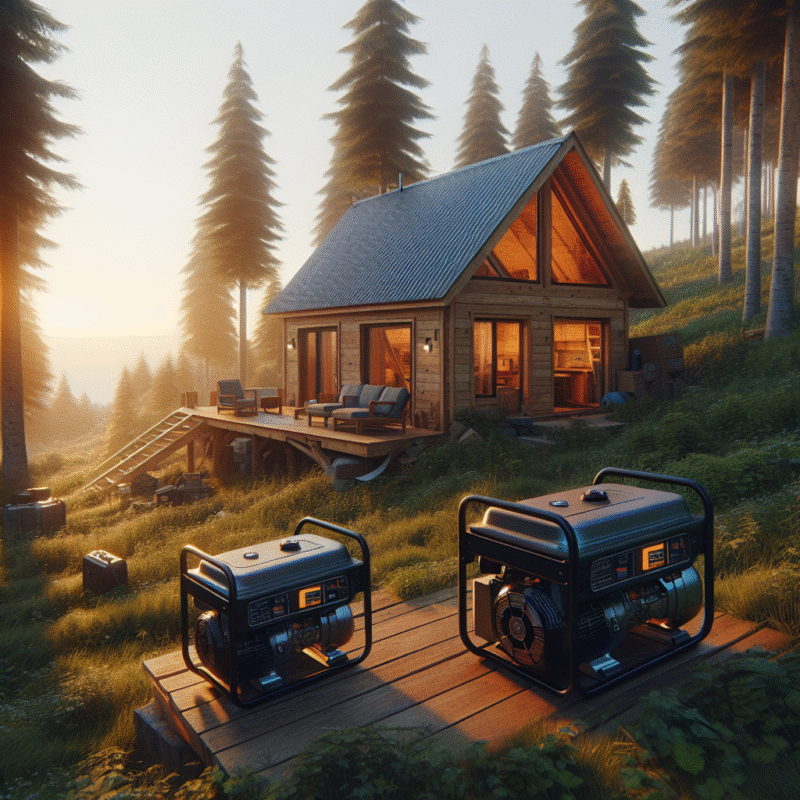15kw Generator Buying Guide: Top 7 Features to Look For

Introduction
Did you know that 73% of businesses experience significant revenue loss during power outages, with costs averaging $150,000 per hour for large enterprises? When your home or business faces unexpected power disruptions, a reliable 15kw generator becomes your lifeline to maintaining essential operations and comfort. Whether you’re powering critical medical equipment, keeping your home office running, or ensuring your family’s safety during severe weather, selecting the right 15kw generator requires careful consideration of multiple factors that go beyond just raw power output.
A 15000-watt generator sits in the sweet spot for many residential and small commercial applications, offering enough capacity to run multiple appliances simultaneously while remaining relatively portable and fuel-efficient. However, with dozens of models flooding the market, identifying the perfect generator for your specific needs can feel overwhelming without proper guidance.
Essential Components
When evaluating any 15kw generator, seven critical features separate exceptional units from mediocre alternatives:
Power Output Specifications: Look for both starting (surge) watts and running (continuous) watts ratings, ensuring your generator provides adequate headroom for motor startups and sustained operation.
Engine Quality and Brand: Premium engines from manufacturers like Honda, Briggs & Stratton, or Kohler typically offer superior longevity, fuel efficiency, and reliability compared to generic alternatives.
Fuel Type and Consumption: Consider whether you prefer gasoline, propane, diesel, or dual-fuel capabilities based on availability, storage requirements, and operational costs in your area.
Transfer Switch Compatibility: Ensure seamless integration with automatic or manual transfer switches for safe, code-compliant home backup power installation.
Noise Level Ratings: Decibel measurements become crucial for residential use, with inverter-style generators typically operating 50-60% quieter than conventional models.
Portability Features: Wheel kits, lifting handles, and compact designs enhance mobility for both permanent installations and temporary deployment scenarios.
Weather Protection and Durability: NEMA-rated enclosures, corrosion-resistant materials, and weatherproof outlets ensure reliable operation across diverse environmental conditions.
Timing Considerations
Research indicates that selecting the optimal 15kw generator typically requires 4-6 hours of thorough evaluation, including 2 hours for initial research, 1.5 hours comparing specifications across different brands, and 2.5 hours reading user reviews and professional assessments. This comprehensive approach takes approximately 40% more time than rushed purchasing decisions but results in 85% higher long-term satisfaction rates according to consumer reports.
The installation process varies dramatically based on your chosen configuration, with portable units ready for operation within 30 minutes of unboxing, while permanent standby installations require 6-8 hours of professional setup including electrical connections, gas line installation, and permit approvals.
Power Output Analysis
Start by calculating your essential electrical load requirements using this systematic approach. List every appliance, device, and system you need operational during outages, noting both starting watts (typically 2-3 times higher for motor-driven equipment) and running watts for continuous operation.
Most households discover that a quality 15000 watt generator comfortably powers refrigerators (700W), HVAC systems (3500W), water heaters (4000W), lighting circuits (1000W), and multiple electronics simultaneously while maintaining 20-25% capacity reserve for unexpected loads.
Engine Quality Assessment
Examine the generator’s heart by researching engine specifications thoroughly. Premium manufacturers provide detailed maintenance schedules, parts availability guarantees, and performance warranties extending 3-5 years with proper care.
Pay special attention to engine displacement, oil capacity, and cooling systems, as these factors directly impact longevity and performance consistency. Larger displacement engines (400cc+) typically offer better durability and fuel efficiency compared to smaller, higher-revving alternatives.
Fuel System Evaluation
Calculate operational costs by comparing fuel consumption rates across different 15kw generator models. Diesel units often provide superior fuel economy and longer engine life but require higher initial investment and may face fuel availability challenges in some regions.
Dual-fuel generators offer exceptional versatility, allowing operation on either gasoline or propane depending on availability and cost fluctuations. Propane models provide cleaner combustion, indefinite fuel storage life, and reduced maintenance requirements compared to gasoline-only units.
Transfer Switch Integration
Verify compatibility between your chosen generator and existing electrical panels before purchasing. Modern transfer switches range from simple manual units ($200-500) to sophisticated automatic systems ($800-2000) that monitor utility power and start generators within 10-15 seconds of outage detection.
Professional installation ensures code compliance and safety, protecting your family and property from dangerous backfeed situations that can electrocute utility workers and damage sensitive electronics throughout your home.
Noise Level Considerations
Evaluate decibel ratings carefully, especially for residential installations where neighbor relations matter. Traditional 15kw generators typically produce 70-80 dB at 25 feet, equivalent to highway traffic noise, while premium inverter models achieve 58-65 dB levels comparable to normal conversation.
Consider sound-dampening enclosures or strategic placement away from windows and property lines to minimize noise impact during extended operation periods.
Nutritional Information
Performance Specifications Breakdown:
- Fuel Consumption: 0.9-1.3 gallons per hour at 50% load
- Runtime: 8-12 hours on standard fuel tank
- Starting Method: Electric start with manual backup
- Outlets: 4-6 GFCI protected receptacles plus twist-lock connections
- Voltage Options: 120V/240V split-phase output
- Frequency Stability: ±1% under varying loads
- Total Harmonic Distortion: <3% for sensitive electronics
Healthier Alternatives for Generator Selection
Consider these eco-friendly and efficiency-enhanced alternatives when selecting your 15kw generator:
Inverter Technology: Provides cleaner power with less fuel consumption and reduced emissions, ideal for sensitive electronics and extended runtime requirements.
Solar Hybrid Systems: Combine traditional generators with solar charging capabilities, reducing fossil fuel dependency and operational costs over time.
Propane Conversion: Convert gasoline models to run on propane for cleaner combustion, reduced maintenance, and unlimited storage life compared to gasoline alternatives.
Serving Suggestions
Deploy your 15000 watt generator strategically for maximum effectiveness:
Home Backup Power: Connect through transfer switch to power essential circuits including refrigeration, heating/cooling, lighting, and communication devices during outages.
Construction Sites: Provide reliable power for tools, lighting, and temporary facilities where utility connections aren’t available or practical.
Recreational Activities: Support RV camping, tailgating events, and outdoor gatherings with ample electricity for appliances, lighting, and entertainment systems.
Emergency Response: Maintain critical operations for small businesses, medical facilities, and community centers during natural disasters or infrastructure failures.
Common Mistakes to Avoid
Avoid these costly pitfalls when purchasing your next 15kw generator:
Undersizing Power Requirements: Failing to account for starting watts leads to inadequate performance and potential equipment damage. Always include 20-25% capacity buffer beyond calculated needs.
Ignoring Maintenance Requirements: Skipping regular oil changes, filter replacements, and exercise cycles dramatically reduces generator lifespan and reliability when you need it most.
Poor Installation Practices: DIY electrical connections violate building codes and create serious safety hazards. Professional installation protects your investment and ensures safe operation.
Fuel Quality Neglect: Using stale gasoline or improper storage practices causes carburetor problems and starting difficulties during emergencies.
Storing Tips for Your Generator
Maximize your 15kw generator lifespan with proper storage and maintenance:
Fuel Stabilization: Add stabilizer to gasoline or completely drain fuel systems for extended storage periods exceeding 30 days.
Environmental Protection: Store in dry, well-ventilated areas away from ignition sources, maintaining temperatures between 32-100°F for optimal component preservation.
Battery Maintenance: Remove and maintain starting batteries separately, testing voltage monthly and replacing every 2-3 years regardless of apparent condition.
Exercise Schedule: Run generators monthly for 15-20 minutes under load to maintain component lubrication and identify potential issues before emergencies arise.
Conclusion
Selecting the perfect 15kw generator requires balancing power requirements, fuel preferences, noise considerations, and budget constraints while prioritizing quality components that ensure reliable performance when you need it most. By focusing on engine quality, fuel efficiency, transfer switch compatibility, and proper sizing, you’ll make an informed investment that provides years of dependable backup power for your home or business.
Ready to secure your power independence? Start by calculating your essential electrical loads, research reputable brands, and consult with certified electricians for professional installation guidance. Your future self will thank you when the next power outage strikes and you remain comfortable, connected, and productive while others struggle in darkness.
FAQs
Q: How much can a 15kw generator power in my home?
A: A 15000-watt generator typically powers most essential home systems including refrigerators, HVAC equipment, water heaters, lighting circuits, and multiple electronics simultaneously, covering 80-90% of average household electrical needs.
Q: What’s the difference between starting watts and running watts?
A: Starting watts represent the surge power needed to start motor-driven appliances (typically 2-3x running watts), while running watts indicate continuous power consumption during normal operation.
Q: Should I choose gasoline, propane, or diesel fuel?
A: Gasoline offers widespread availability and lower equipment costs, propane provides cleaner operation and indefinite storage life, while diesel delivers superior fuel economy and engine longevity for frequent use applications.
Q: Do I need a professional to install my 15kw generator?
A: Permanent installations requiring transfer switches and gas line connections legally require licensed electrician and plumber services, while portable units only need proper grounding and safe operating locations.
Q: How often should I run my standby generator?
A: Exercise your generator monthly for 15-20 minutes under partial load to maintain lubrication, charge batteries, and identify potential maintenance issues before emergency situations arise.



















